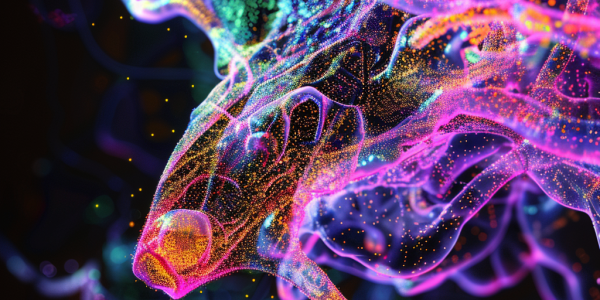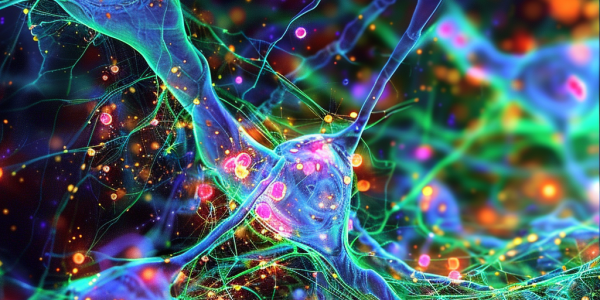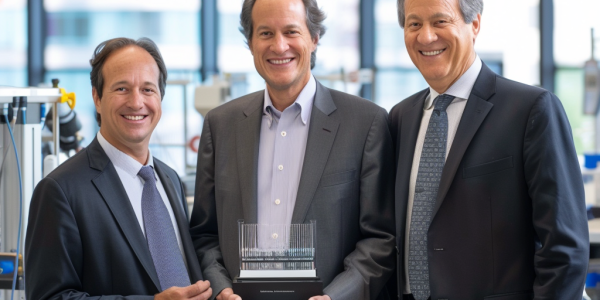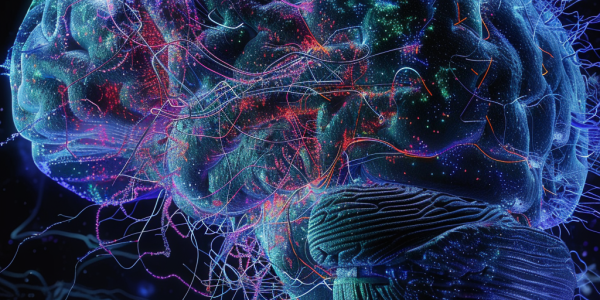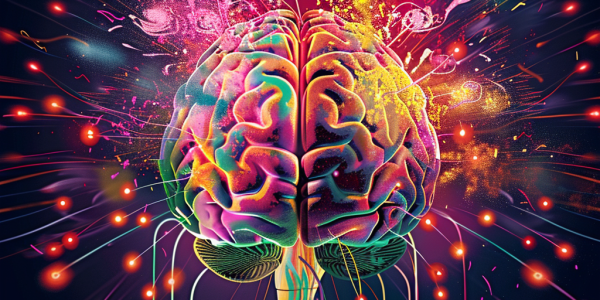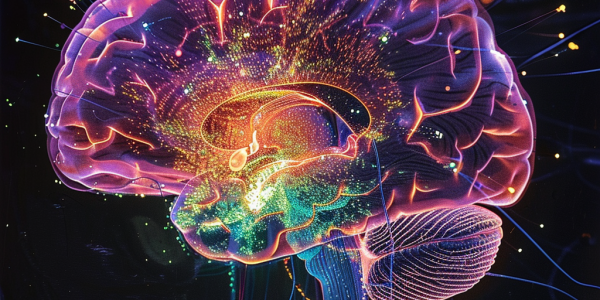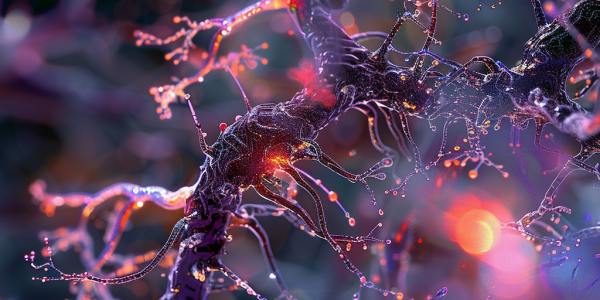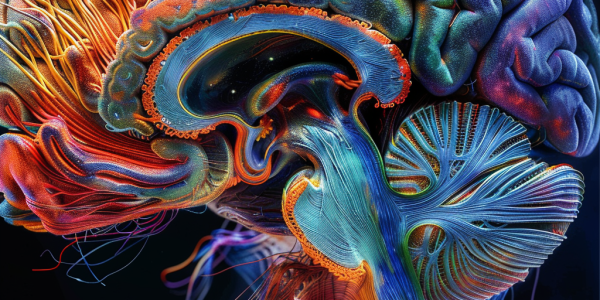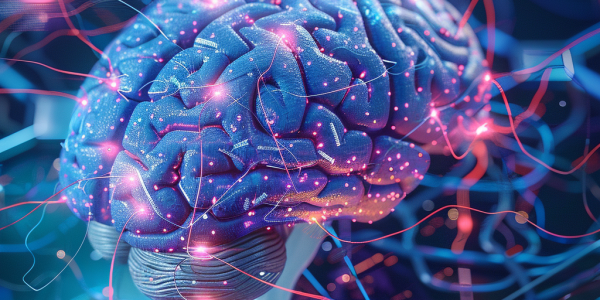AI Tool QDyeFinder Revolutionizes Neuron Mapping in the Brain
Kyushu University researchers have developed QDyeFinder, an AI tool revolutionizing neuron mapping in the brain. This groundbreaking technology utilizes color-coding and machine-learning algorithms to unravel intricate neuron networks, advancing our understanding of the human brain. Published in Nature Communications, the study demonstrates QDyeFinder’s ability to automatically identify and reconstruct individual neurons, offering a more efficient solution to the challenging task of neuron mapping in neuroscience.
Breakthrough Technique Reveals Unseen Features of Synaptic Organization in the Brain
Researchers have developed a cutting-edge technique for high-throughput volumetric mapping of synaptic transmission, revealing new insights into synaptic organization in the brain. The study, ‘High-throughput volumetric mapping of synaptic transmission,’ published in Nature Methods, employed a novel approach using Bessel-droplet foci for high-resolution imaging of synapses. This groundbreaking research offers valuable implications for neuroscience and beyond.
University of Chicago President Wins 2024 Kavli Prize in Nanoscience
University of Chicago President, Paul Alivisatos, awarded the prestigious 2024 Kavli Prize in Nanoscience for groundbreaking research in nanoscale materials for medical applications. Alivisatos, along with MIT’s Robert Langer and Northwestern University’s Chad Mirkin, revolutionized nanomedicine, advancing biomedical research and applications. The $1 million prize ceremony will take place in Norway in September, honoring their collaborative efforts and significant impact on medicine and biological discovery.
Revolutionizing Neuroscience: MIT Researchers Develop Technology for 3D Imaging of Entire Human Brain Hemispheres
Exciting advancements in neuroscience research have been made as a team of researchers from MIT successfully developed a technology pipeline for 3D imaging of entire human brain hemispheres at subcellular resolution. This groundbreaking achievement opens up new possibilities for studying the intricacies of the human brain in health and disease, offering new insights into neurodegenerative diseases like Alzheimer’s.
The Impact of Beauty, Art, and Nature on Mental Health
Discover the profound impact beauty, art, and nature have on our well-being and mental health. Research shows that exposure to beauty and art can trigger the release of dopamine, leading to feelings of pleasure and inspiration. Spending time in natural environments can also reduce stress, anxiety, and depression. Prioritize these experiences to rejuvenate your mind and enhance your quality of life.
The Role of ‘Sharp Wave Ripples’ in Memory Formation
New research in neuroscience reveals the role of ‘sharp wave ripples’ in memory formation, highlighting the importance of rest and sleep. György Buzsáki’s study shows how these electrical bursts in the brain flag experiences for long-term storage, aiding in memory consolidation and formation. Understanding these mechanisms can optimize learning and cognitive function.
The Impact of Arousal on Visual Perception: Insights from Recent Study
Discover how arousal levels influence visual perception according to a recent study by neuroscientist Laura Busse from LMU. The research sheds light on the complex processes that govern our visual experiences, challenging the traditional view of visual stimuli interpretation. Learn about the distinct firing modes in the visual thalamus and the correlation between arousal levels and neural activity, offering valuable insights into the dynamic interplay between brain activity and sensory experiences.
Groundbreaking Discovery in Brain Wiring Diagram Revealed
Scientists from Harvard University and Google have made a groundbreaking discovery by reconstructing a detailed wiring diagram of a small piece of brain tissue, shedding light on the intricate neural connections within the brain. This research, focused on a tiny cubic millimeter of brain tissue, revealed 57,000 individual cells, 150 million neural connections, and 23 centimeters of blood vessels. By utilizing advanced technology and machine-learning algorithms, the researchers delved into the nanoscale details of the brain’s structure, generating a massive 1.4 petabytes of data. This study represents a significant leap forward in understanding the complexities of the human brain.
Advancements in Neuroscience: Unraveling the Mysteries of Brain Plasticity and Connectomics
Discover the groundbreaking advancements in neuroscience that are revolutionizing our understanding of the brain and its potential. Learn about brain plasticity and its types, including synaptic plasticity, structural plasticity, and neurogenesis. Explore the field of connectomics and how it is mapping neural networks to provide insights into neurological and psychiatric disorders.
Groundbreaking Discovery: Specific Brain Cells Enhance Memory Focus and Storage
Groundbreaking neuroscience research identifies PAC neurons that enhance memory focus and storage without storing information themselves. Study sheds light on brain cells coordinating working memory, potentially leading to improved treatments for Alzheimer’s and ADHD. Discovery of PAC neurons utilizing phase-amplitude coupling to synchronize with memory-related brain waves highlights hippocampus’s role in controlling working memory. Research, part of NIH’s BRAIN Initiative and published in Nature, showcases Cedars-Sinai Medical Center’s pivotal role in unraveling brain processes. Understanding control aspect of working memory crucial for developing treatments for cognitive conditions, opening new avenues for exploring brain workings and memory processes.

